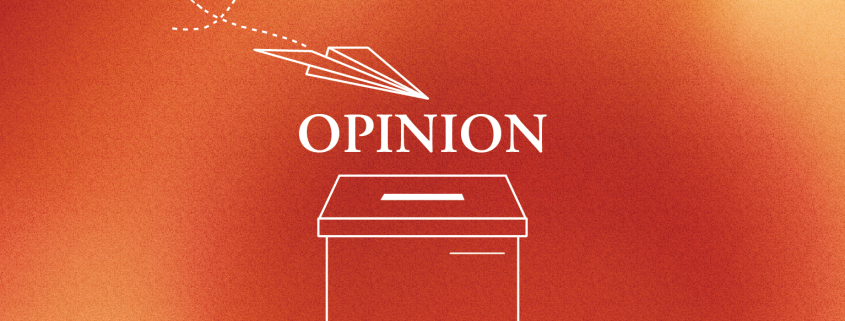Tea-sha: An ode to student journalism
The first time I picked up a copy of the Daily Trojan was as an indecisive high school graduate touring colleges a month before the college commitment deadline. The edition, which to date, remains in my bedroom back home in India, cemented that DT would be a part of the equation in choosing USC.
But if you told this shy, unsure freshman — who did not end up joining DT until sophomore year because she had no idea where the newsroom was or how to get involved — that she would end up serving as editor-in-chief her senior year, she wouldn’t have believed you. However cliche this may sound, at a large University like USC, DT has been the little corner I’ve felt most at home.
Student journalism, especially at a place such as USC where scandals are the norm, has given me a larger purpose — keeping the community informed and holding the administration accountable. Neither of which have been easy, and both have come before my own mental health, academics and social life.
While serving as the EIC, I remember working over 50 hours a week while taking 21 units of some of my hardest classes and not sleeping more than three hours most days. I remember not making it to any of my classes for two weeks because covering the sexual assault protests happening on campus was more important. I cried every single day for a month because I was doing too much, taking on too much and incapable of admitting that I had reached my breaking point — not to myself and much less to anyone else.
During this time, I started working on a piece featuring USC survivor stories. Listening to accounts of these women’s experiences was taxing enough by itself, and I found myself crying after every interview I did but realizing through their stories that I had undergone a similar experience my freshman year was even more devastating. Rather than processing all the complicated emotions that arose from the revelation, I continued working on autopilot mode because I simply did not have the time for a breakdown.
None of this was expected of me, but as someone who has always put the story and work before herself, DT served as the perfect catalyst for burying myself in work as a distraction. There’s not much I would change about my experience at DT and the innumerous ways it has allowed me to grow as a leader, a writer and a journalist — but I can’t help but wonder if this is how it’s always going to be?
As a journalist, will I always put my own sanity and mental health second because the story is more important? Will I push myself harder than I need to due to how important the job is? Are these behaviors and pitfalls of journalism first developed in student newsrooms where we are expected to be both full-time students and journalists?
A lot of my behavior stemmed from my own personality and work ethic — but student newsrooms reinforce many of these issues with every single person being exhausted, balancing multiple commitments and not doing great mentally. And yet, the work we do is too important.
I often use humor as a way to cope with my mental health and not take things seriously, which makes writing a satire column during the semester I was most depressed even more ironic, but I am exhausted. I am tired of pretending I am OK when I am not. I refuse to keep running away from my feelings and thoughts by mindlessly distracting myself with work. Most importantly, I remain hopeful that it is possible to be a journalist and put your mental health first and that there is a way forward without burnout.
Reflecting on my time as a student journalist, I sometimes wonder why I stayed as long as I did. It’s hard to explain to my friends and non-journalists why everyone in the newsroom commits to spending five days a week and multiple hours a day putting together each new issue. While I can’t speak for others, for me, it is the service we provide to our audiences; the stories we are able to share and the impact our work has.
Even all these semesters later, I collect each issue with an article written by yours truly because there is something special about seeing something I wrote in print. There is a privilege in being able to immortalize my words that will be around long after I am gone and knowing that, through these words, I was able to share someone else’s story. Writing has always been my way of communicating and sharing pieces of myself with the world, and DT gave me the platform to do that during my time at USC.
The past four years and my time as a student journalist have included both ups and downs, but they have furthered my commitment to being a storyteller and using both journalism and film to keep telling stories of myself, other people and our world. As my time at DT and USC comes to a bittersweet end, I am eager to keep asking more questions and seeking solutions at Columbia Journalism School in the fall, while continuing to pursue what I love.
Twesha Dikshit is a senior writing tongue-in-cheek satire on daily life, the world around us and our daily march toward death. Her column, “Tea-sha,” ran every other Monday.

